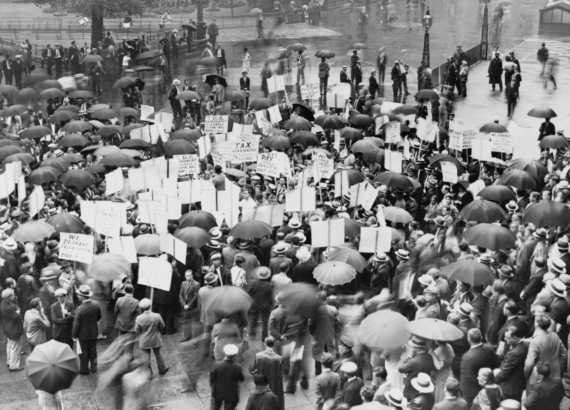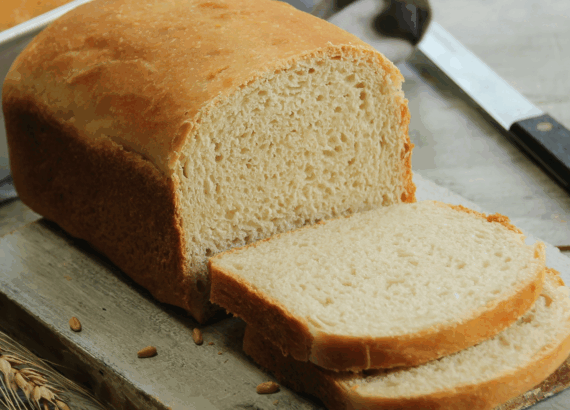The Art of Getting On With It: Great Grandma’s Quirky Advice That Works
AmericanMom Team |
Our grandparents didn’t have podcasts, self-help shelves, or wellness influencers telling them how to live a better life. They had something else — a handful of simple, tried-and-true habits that worked just as well in a farmhouse kitchen as they do in a modern home. They didn’t call it “mental health” or “self-care.” They called it getting on with it.
This isn’t the kind of advice you’ll find in a glossy magazine or on a trending reel. It’s the kind that’s been passed down on front porches, in kitchen conversations, and through the quiet example of people who knew how to face the day with grit and grace. Here are a few pieces of old-fashioned wisdom worth dusting off and putting back into practice.
“Run around the house three times.”
Grandma’s version of a mood reset button. Gets your heart thumping, your lungs working, and your mind off whatever’s weighing you down. By the time you’re back at the front door, you’ve traded worry for winded — and that’s an upgrade.
“Go outside and get some fresh air.”
The oldest mood booster there is. Step beyond four walls, feel the sun on your skin, and let the breeze carry off the heaviness. Before “grounding” was a wellness trend, it was just called stepping outside — and it still works.
“Wash your face with cold water.”
The quickest mood reset there is. One icy splash wakes up your skin, jolts your senses, and reminds your brain you’re alive. It’s the pioneer’s coffee, the farmer’s afternoon pick-me-up — proof you don’t need much to start fresh.
“Stand up straight — shoulders back.”
Instant confidence, no caffeine required. A lifted spine and squared shoulders tell the world — and your own mind — that you’re ready for whatever’s next. Sometimes the fastest way to feel taller is just to act like it.
“Take a brisk walk after supper.”
The original after-dinner pick-me-up. A quick loop around the block settles the stomach, clears the head, and leaves you lighter in both body and mood. Long before step counters, folks just knew — a walk at dusk was good for you.
“Make your bed.”
Start small, win big. That one simple act turns chaos into order and tells your brain the day has begun. It’s proof that even the smallest victory can set the tone for everything that follows.
“Hang the laundry outside.”
Work you can see, smell, and feel. Sunlight warms the fabric, fresh air does the rest, and you end up with more than clean clothes — you’ve got the quiet satisfaction of a job well done, swaying on the line.
“Write a letter to a friend.”
Put pen to paper and let your thoughts travel farther than a screen. A letter slows you down, makes you choose your words with care, and gives someone the joy of finding more than bills in the mailbox. It’s the analog cure for loneliness — and a keepsake they’ll hold onto long after the moment has passed.
“Do a chore that makes you sweat.”
Put your back into something — scrub the floor, sweep the porch, stack the woodpile. The heat on your skin and the ache in your muscles are proof you’ve traded idleness for accomplishment. By the time you’re done, you’ve not only cleaned a space, you’ve cleared your head.
“Sing or whistle while you work.”
Off-key? All the better. It’s not about hitting the note — it’s about lifting your mood. A song or a whistle turns chores into rhythm, work into play, and the day into something you hum along to.
“Sit on the porch and watch the world for a spell.”
The cure for hurry. Let the breeze find you, the sun warm your face, and the day roll by without a single scroll or ping. It’s the old art of being still — present, unhurried, and part of the view instead of rushing past it.
“Count your blessings out loud.”
Gratitude spoken has a way of shrinking troubles down to size and reminding you what’s still good. And when little ears or family are nearby, they’ll be inspired by the way you see the world — learning that thankfulness is something you live out loud.
“Put on your good clothes.”
Not for a wedding, not for Sunday service — for an ordinary Tuesday. Wear the dress that makes you stand taller, the shirt that reminds you of better days, the shoes that click with confidence. Our grandmothers knew the truth: when you dress like life’s worth showing up for, it’s easier to live like it is.
These little bits of advice may sound quaint in our fast-moving, screen-lit world — but they still work. A brisk walk, a splash of cold water, a few words of gratitude spoken aloud… they’re not magic, but they are everyday medicine.
Our grandmothers and grandfathers knew life wasn’t always easy, but it was still good. Their remedies weren’t about escape — they were about engagement. About showing up for your own life, even on the hard days, with your sleeves rolled up and your heart open.
So try one. Or three. And the next time you find yourself worn thin or weighed down, remember: you don’t always need something new — sometimes you just need something time-tested, like simply getting on with it.






